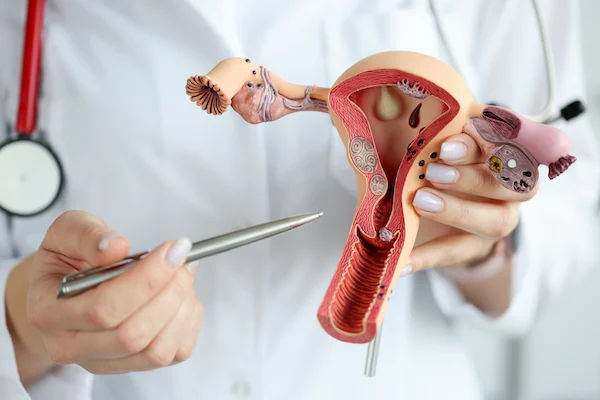- Female
- 29 Years
- 20/02/2025
I'm currently using a Symbicort 320 inhaler and I'm a bit worried about how to manage it after my c-section delivery. I'm concerned I might not be able to inhale it properly when the time comes, considering the incision and all. Could you advise me on any alternative medications I should consider for that period? I'm at 30 weeks and 0 days into my pregnancy today.
Answered by 1 Apollo Doctors
continue the same
Dr. Shubham Suggests...
Consult a Obstetrician and Gynaecologist
Answered 04/07/2025
0
0

Ask Apollo
AI powered Health Chatbot
-
Understanding Your Current Medication and Its Importance
- Symbicort (budesonide + formoterol) is crucial for managing asthma or COPD, especially during pregnancy. Continuing asthma control post-delivery is essential to prevent complications.
-
Challenges After C-Section Delivery
- The incision and pain may affect your ability to use the inhaler effectively, impacting medication delivery.
-
Alternative Medication Options and Delivery Methods
- Consider using a spacer device to make inhaler use easier.
- Nebulized treatments can be an alternative during the immediate post-operative period.
- Oral or systemic medications should be used only if necessary and under strict medical supervision.
-
Coordination with Healthcare Providers
- Consult your obstetrician, pulmonologist, or respiratory specialist for personalized advice and plan medication adjustments before delivery.
-
Monitoring and Support Post-Delivery
- Watch for signs of worsening symptoms and know when to seek urgent medical care.
-
Additional Tips for Managing Respiratory Health Post-C-Section
- Employ pain management strategies to facilitate breathing and inhaler use.
- Consider breathing exercises and physiotherapy support if recommended.
Recommended next steps
Consult a Obstetrician and Gynaecologist or Consult a Pulmonology Respiratory Medicine Specialist
Answered 10/09/2025
0
0

More Obstetrics & Gynaecology Health Queries
View allI'm a bit worried and confused about something that happened recently. If a guy rubs his genitals and ejaculates in his underwear, and then there's rubbing against a woman's genitals with a very slightly wet surface, could that possibly lead to pregnancy, especially since it happened a week after her period ended?
There is almost negligeble risk of you becoming pregnant no need to worry
Answered by 1 Apollo Doctors
I've got a question about pregnancy risks and I'm a little worried. If I touched sperm, then cleaned my hands by rubbing them together, and later inserted a finger into my girlfriend's vagina, is there any chance she could get pregnant?
Even with clean hands, there's still a risk of pregnancy if sperm comes into contact with the vagina, as sperm can survive on skin and surfaces for up to 20-30 minutes; however, the chances of pregnancy from this scenario are relatively low, but not impossible, so it's essential to use proper birth control methods or consult a healthcare professional for guidance.
Answered by 1 Apollo Doctors
I've got a bit of a concern about my period and Plan B. I had my period mid-July, from the 14th to the 18th, and then I had unprotected sex on the 19th. I took the emergency contraception pill on the 22nd. But then, oddly, I got my period again on the 28th, and it only lasted about 4 days. Is this normal? Could this be a side effect of taking Plan B?
-Yes, the bleeding you experienced on July 28 could be a side effect of the Plan B pill. Its common for emergency contraception to cause irregular bleeding or spotting, even if your period comes around the usual time.
Answered by 1 Apollo Doctors
Disclaimer: Answers on Apollo 247 are not intended to replace your doctor advice. Always seek help of a professional doctor in case of an medical emergency or ailment.

_1.webp)



